Omar ibn Said: A tale of survival, faith, and the American slave trade
To commemorate the International Day for the Remembrance of the Slave Trade and its Abolition, the captivating story of Omar ibn Said, a Muslim scholar who was forcibly taken from Senegal and enslaved in America, comes to the forefront.
His unique journey is not only a tale of survival but also a testament to the resilience and complexity of those subjected to the horrors of the transatlantic slave trade.
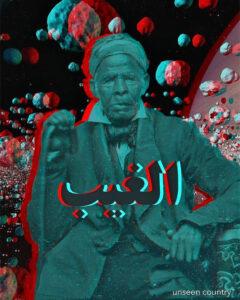
Omar ibn Said’s Unveiled Narrative
Written in Arabic and recently acquired by the Library of Congress, “The Life of Omar Ibn Said” sheds light on the life of an American slave and provides a rare glimpse into the early history of Muslims in the United States. This handwritten autobiography, penned 190 years ago, has emerged as one of the first personal accounts of the Muslim experience in early America.
Omar’s journey began in the Imamate of Futa Toro, a region along the Middle Senegal River in West Africa, where he was born to a prosperous family. As an Islamic scholar and a Fula, he spent a quarter of a century honing his knowledge under esteemed Muslim scholars, delving into subjects ranging from mathematics and astronomy to business.
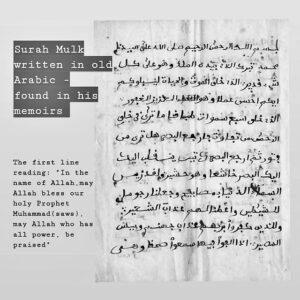
Captured, Enslaved, and the Path to Freedom
Tragically, Omar’s life took a drastic turn when he was captured, enslaved, and taken to Charleston, South Carolina. His autobiography vividly describes the violence of his capture by a large army and the harrowing “great sea” voyage that lasted over a month. The autobiographical account offers a chilling testament to the brutality of the slave trade and the horrors of the middle passage.
Omar was one of the estimated one-third of American slaves who practiced Islam. Even though the exact number remains unknown, it’s believed that up to 40 percent of enslaved individuals hailed from predominantly Muslim regions of West Africa.
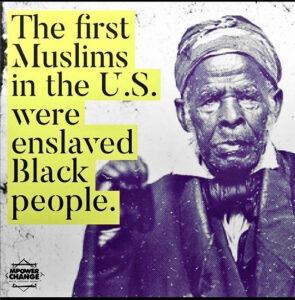
A Life of Struggle and Identity
As he endured more than two decades of enslavement, Omar’s unique blend of resilience and intellect shaped his trajectory. He managed to escape his captors and sought refuge in Fayetteville, North Carolina, where he engaged in Islamic practices and even inscribed Arabic text on the walls of his prison cell, challenging the misconception of enslaved Africans’ illiteracy.
Purchased by General James Owen, Omar’s life took yet another turn as he was exposed to Christianity. While he underwent a Christian baptism, his Arabic writings within his Bible reveal his ongoing devotion to Islam. Omar’s clever intertwining of his religious beliefs showcased his discreet approach to practicing his faith under the circumstances.
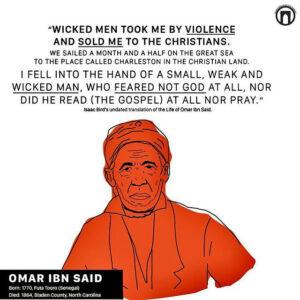
Legacy and Rediscovery
Omar’s life was marked by ingenuity and adaptability, exemplified by his Arabic writings that transcended religious boundaries. His narrative sheds light on the complexities of identity and survival in a tumultuous era. Though details of his later life remain somewhat elusive, it is believed that he lived until the age of 94.
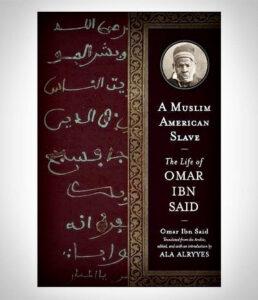
The story of Omar ibn Said stands as a tribute to the untold stories of countless enslaved individuals who navigated the treacherous waters of slavery while preserving their faith and identities.
His autobiography continues to resonate as a testament to the power of the human spirit and the resilience in the face of adversity.


